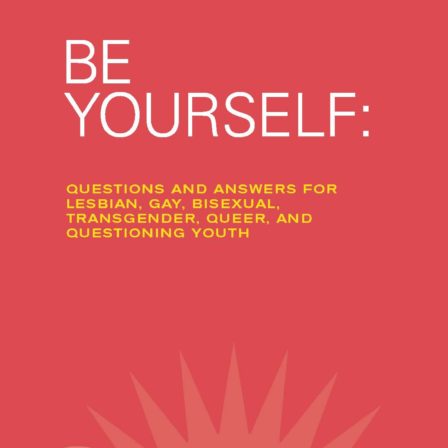I think I might be Gay
I think I might be gay, but I’m not sure. How do I know?
Some people say they’ve always known that they were “different” in some way. When they eventually realized they were gay, many of the things they had felt growing up seemed to make sense. For others, the realization is triggered by the many changes that accompany adolescence. Some don’t recognize their sexual orientation until adulthood.
It is important to remember that, just because someone has had a crush on, or has had a sexual experience with someone of the same sex, that does not necessarily mean that s/he is gay. The important thing to remember is to figure out that there is no rush to find out if you are gay or straight. Take your time and don’t put any pressure on yourself. Just know that whoever you turn out to be is okay.
How can I be sure I’m gay if I haven’t had sex?
Being gay is about who you are attracted to, who you fall in love and have long-lasting, meaningful relationships with. Sex is just one aspect of a loving relationship. Did your straight friends need to have sex to know that they were straight? It’s no different if you’re gay.
Is being gay normal?
Being gay is completely normal and healthy. No one is sure why people are born gay. By some estimates, one of every ten people is gay. Being gay is just one of the ways that people differ, nothing more.
How can I be gay? I don’t fit the stereotypes.
It is a common misconception that all gay men are effeminate and all lesbians are masculine. Though there are some men and women who fit these stereotypes, there are many who don’t. The important thing is that you be yourself. These stereotypes are examples of how people confuse sexual orientation – who you are attracted to – with gender expression – how you dress and act. They’re very different, independent aspects of a person’s being. Learn more on our
Should I worry about HIV and AIDS?
Everyone should be informed about HIV and AIDS, not just gay people. It’s not your sexual orientation that puts you at risk for HIV infection, it’s your behavior. HIV is transmitted in three main ways:
- through unprotected sex with an infected person;
- through sharing needles or syringes with an infected person;
- the virus can be passed from an infected woman to her baby during pregnancy.
Be sure to educate yourself regarding not only HIV/AIDS, but also other sexually transmitted diseases (STDs).
Should I “come out”?
Telling other people that you are gay is called “coming out.” Deciding whether to come out is a very personal decision and one that should not be made too quickly. You should only come out if you want to and if you are ready.
Coming out is a big decision because, although you hope that your friends and family will support you, it is possible that they won’t. There are many issues to consider before making the decision to come out:
- You should never come out in anger or frustration, but instead because you love the person you are telling and want to become closer to him/her.
- Educate yourself. Rely on authoritative sources (like PFLAG, GSLEN, the American Psychiatric Association, the American Medical Association, etc.). Don’t listen to rumors and street buzz.
- If you are financially dependent on your parents, you may want to wait to come out to them. It is possible that they may react poorly. In some extremely homophobic households, you might be forced out of the house. You may want to wait until you are more independent.
- If you do come out, it’s a good idea to start by telling someone who you are pretty certain will have a positive reaction. Be sure to have literature available to help respond to the questions you will most likely face. (PFLAG can provide you with information to offer your family and friends.)
- If you’re religious, your faith leader may be of help, but do your homework first. Many faiths and congregations are welcoming; but many others still are not. If yours is one of the latter, you may want to seek out a welcoming one.
If and when you do decide to come out to your parents and others, remember that PFLAG is here to help.
What will my future be like?
Whatever you want it to be. Discrimination against gay people still exists, but is lessening every day. People your age are much less concerned about it. More and more faiths welcome gay people as members of their congregations, and some religions have begun to recognize gay unions. In addition, more and more employers offer benefits to domestic partners. Many gay couples also choose to raise children, and several states allow gay couples to adopt.
Be Yourself offers a supportive and understanding approach to today's most common questions and concerns from youth regarding sexual orientation, gender identity, and gender expression. With youth coming out--and disclosing--at younger and younger ages, Be Yourself has never been more important. The publication also includes an up-to-date list of resources, including hotline numbers, other organizations, and more.

